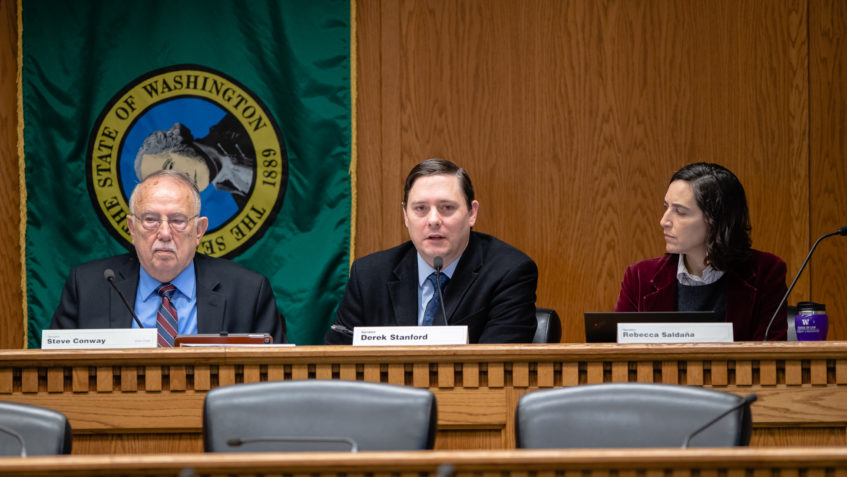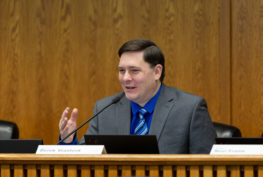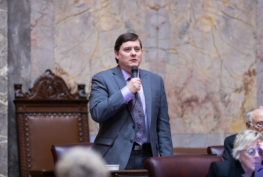BOTHELL – This year, Washington state could join the rest of the west coast in a significant step toward reducing carbon pollution as well as health risks from fuel emissions, if a bill sponsored by Sen. Derek Stanford (D-Bothell) passes.
SB 5231 would implement a clean fuels standard in Washington. The standard would set a trajectory for oil refiners and importers to gradually reduce the carbon intensity of fuels by 20% over 15 years by adding clean biofuels to the mix.
“Not only would implementing a clean fuels standard help to fight climate change and prevent respiratory illnesses caused by air pollution, it would also facilitate economic and job growth across our state,” said Stanford. “It would help keep our energy dollars in Washington, creating good jobs in rural and urban communities hard hit by the pandemic.”
Clean fuels standards are already in place in Oregon, California, and British Columbia, where they have not significantly affected the cost of fuel. In California, the clean fuels standard has worked alongside their cap and trade system to prevent 38 million tons of carbon pollution and spur $2.8 billion in clean fuels investments. According to Consumer Reports, this combination of policies has even saved Californians money—up to $1,530 per family in a year.
“Washington already leads the way in green electricity, with two-thirds coming from renewable resources,” continued Stanford. “That means transportation is far and away our state’s largest source of carbon pollution. A clean fuels standard is an absolutely crucial part of any plan to significantly reduce our carbon pollution.
“Together with the governor’s cap and invest program, this would put Washington on the path to lead the nation in the fight against climate change and create green jobs for our residents.”
Clean fuels standards offer businesses the flexibility to comply in multiple ways, including making on-site investments to reduce process emissions, blending clean biofuels into their product, and supporting clean fuel producers.
Leading public health organizations like the American Lung Association also view the clean fuels standard as an important step for improving public health. California’s clean fuels standard helped spare $2.5 billion in public health costs per year, a savings expected to grow to $8.3 billion by 2025, thanks to fewer asthma attacks and hospitalizations, lower rates of lung cancer and heart attacks, and fewer lost days of work.
“In and around my district, many people get sick, and even have shortened life spans, because of the pollution they’re subjected to in the places they live — near I-5, around the airport, along the Duwamish river,” said Sen. Rebecca Saldaña (D-Seattle), who sponsored clean fuels standard legislation in the 2020 legislative session.
“People and freight have to move freely, but this shouldn’t come at the cost of people’s health. A clean fuels standard would help protect the health of these frontline communities, pushing the private market to invest in new technology to provide cleaner options for our state’s transportation needs.”
Rep. Joe Fitzgibbon (D-West Seattle) has filed companion legislation in the House, HB 1091.
The 2021 Legislative Session began on Monday and will conclude on April 25.




